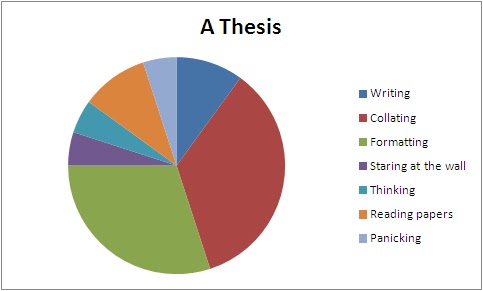Finishing a PhD and managing an industrial partnership

Finishing up a PhD isn't a swift and easy process (something my family can find difficult to understand). It's made slightly more difficult if you move away, start a new job, or if your supervisor moves half way across the globe which is something many PhD students have to contend with. Although, supervisors are always busy even if they are in the same city as you are. I'm reaching the final stretch now. My final hand in date is the 29th of January. I wrote my first full draft back in October and immediately sent it to my supervisor to look over. I took a break over Christmas, and I started my new job in October, went to the Abu Dhabi science festival and then went home ... all great career stuff, but it delayed me a little getting the final bits of thesis completed. My supervisor didn't have too many comments or corrections, so I have only got a few final tweaks (and the dreaded references) to sort out before the end of January. I am finding it useful to have



